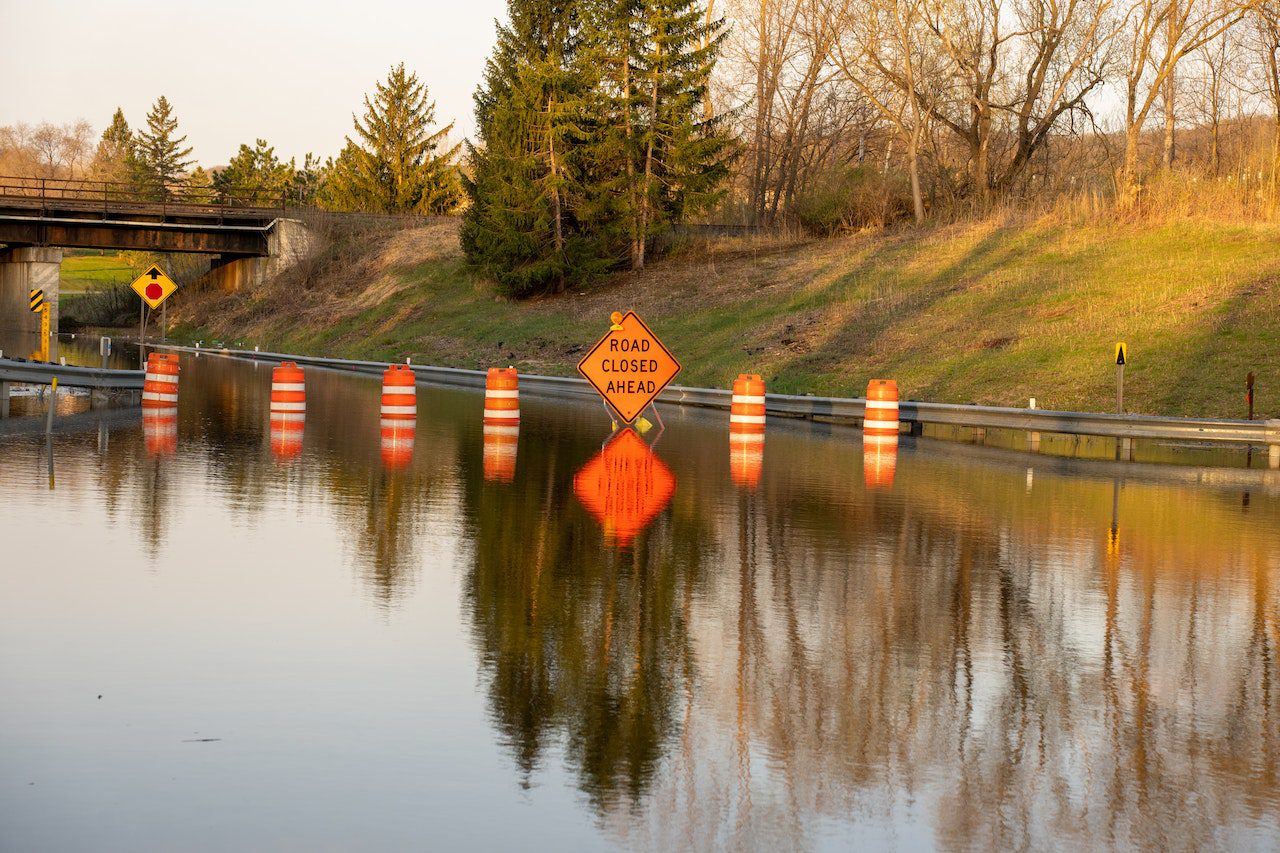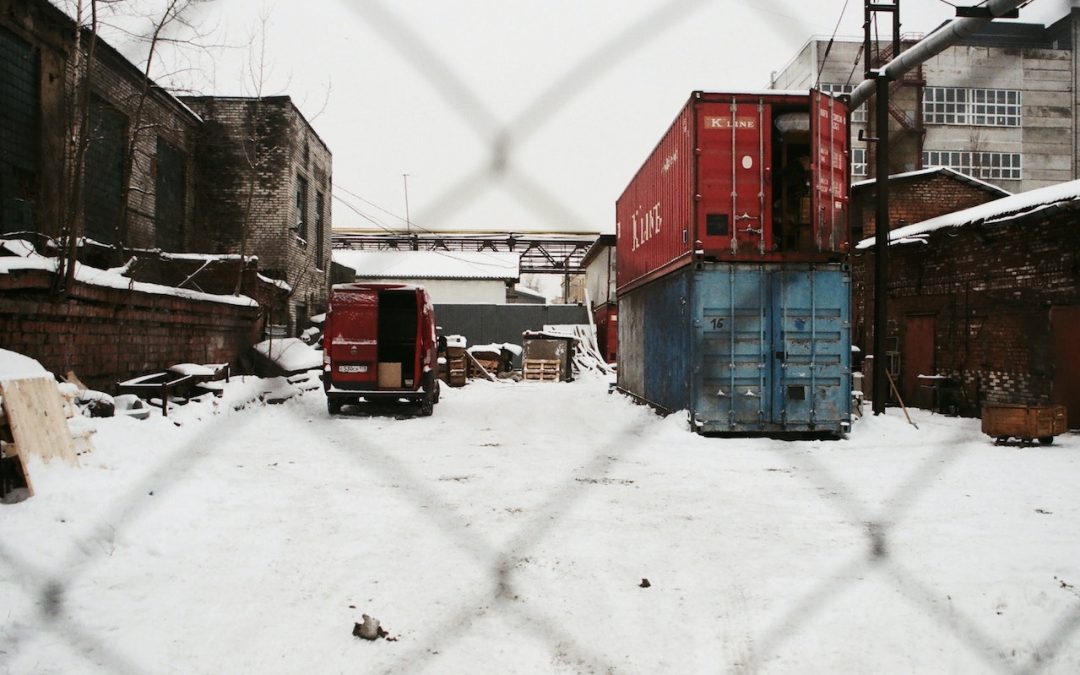The freight industry is complex but hardy.
It is well-equipped to deal with all sorts of scenarios that might cause problems for shipments travelling worldwide, and that includes the weather. Our industry has provisions and protocols in place for all sorts; sun, rain, snow and wind.
But sometimes, adverse or extreme weather conditions can impact your cargo.
Read on to find out how.
What Weather Impacts Freight?
General changes in the weather won’t slow us down, don’t worry. Hail storms, burning summer heat and high-speed winds are no match for the freight industry.
It’s what’s classed as a weather ‘event’ that can give us a headache and cause problems for your consignments.
Storms
According to the Met Office, gales are the most common cause of damage and disruption in the UK.
Storms are generally marked by significant changes to normal weather conditions are arise from a deep and active area of low atmospheric pressure. They can include hail, ice, snow or thunder alongside their characteristic intensely violent winds and heavy rainfall.
Hurricanes
Hurricanes are a type of storm. They form in the Atlantic and boast wind speeds of at least 74mph.
Hurricanes are characterised by their three main parts:
- The calm area in the centre, or the ‘eye’ of the storm.
- The ‘eyewall’, where the gales and precipitation are strongest.
- The rain bands. These spin out from the centre and give the storm its size.
Flooding
Flooding can occur over hours or days, giving us a little warning, or it can develop fast and cause more significant problems.
A flood can happen in many ways but usually occurs when a river or stream overflows. Coastal flooding happens when a tsunami or causes the ocean to rush onto the land.
Floods are the second-most widespread natural disaster on Earth.

Heavy Snow
Heavy snow tends to be classed as snow causing a visibility of less than 0.5km.
A blizzard is a type of snowstorm that involves continuous wind speeds of at least 35mph and visibility of less than a quarter of a mile.
Earthquakes
Earthquakes, where the ground shakes suddenly and violently, are caused by a sudden release of energy within the earth’s crust that creates seismic waves.
How Does Weather Affect Each Mode Of Transport?
When we’re talking extreme weather, it might be difficult to imagine what impact it has on the international movement of goods.
For those in the back, this is what could happen to your cargo in the face of adverse weather conditions.
Road
Drivers cannot operate their trucks if conditions on the road are dangerous.
Extreme weather such as heavy snowfall and ice on the roads can wreak havoc for goods travelling by road, causing trucks and lorries to have to reroute to avoid serious incidents such as crashes and jackknifing.
The UK Met Office uses a tiered weather alert system to advise against the relative severity of adverse weather events. During amber alerts, road haulage workers must prepare their vehicles for potential problems, such as ensuring their truck’s tyres are in good condition and carrying a shovel, tow rope and even a bag of salt or grit with them.
When the red alert is issued, freight problems get more serious. HGV drivers are advised to find a safe place to park away from the road network, meaning travel is delayed completely until an amber alert is issued.
Earthquakes that cause the ground to crack and shift can make road travel unsafe, floods can cause certain areas of the road network to become unusable and the high winds of storms and hurricanes can cause trucks to upturn.
Rail
For trains transporting cargo above ground, adverse weather plays a similar role to that listed above on the road network.
There is a difference though. Traintrack rails are electrified, and this means big problems…
- Ice and snow coating the electrified rail can stop power from reaching the trains.
- Snow may be compacted by running trains to form solid ice, freezing points so that they cannot move efficiently.
- Electrified rails may freeze together, meaning the signals stay red and trains stop unnecessarily.
- Snow, storms and earthquakes can all cause trees and other tall xxx to damage overhead wires and block the track.
Air
Adverse weather can spell real trouble for air freight shipments.
When there are events of snow, ice, fog and strong winds air traffic controllers must space the landing planes out further, meaning that fewer planes can land in the same period. And cancelled flights delay deliveries and lead to serious supply chain disruption.
Interestingly, extreme heat can cause problems too. With mainland Europe experiencing highs around 45°C this year, that’s only three degrees Celcius away from the maximum operating temperature of some aircraft.
Sea
Container vessels rely on clear waters to travel through, and extreme weather can cause both sea ice and changes in the depth of their shipping lanes.
Flooding can be a particular problem because debris from the runoff can build up on the sea bed meaning some channels become shallower or too difficult to navigate without damaging the vessel and getting stuck.
Snow and ice falling heavily onto the decks and rigging of container ships can also cause damage and present a hazardous environment for workers.
What Does That Mean For My Cargo?
Generally speaking, adverse weather = your cargo experiences a delay in getting to its destination. The length of the delay depends on the severity of the weather event and the impact it has had. If this happens, you should be kept up to date by your carrier or freight forwarder.
With sea freight, there’s a little extra something to bear in mind. Big storms mean big waves, and these choppy waters can cause containers to go overboard and become lost. It’s extremely rare, but not unheard of.
If this happens to you, your loss should be covered by your cargo insurance policy. What’s more is that the cost of lost cargo is also shared between companies shipping using the same vessel. This means that even if your cargo remains safe and sound but a fellow sender’s cargo is lost, you’ll need to contribute financially.
Can I Avoid Weather Delays?
Oh, wouldn’t that be a brilliant thing! Unfortunately, even though the weather gurus can spot some weather events coming so that we can prepare for them, many are unexpected. And all of them are unavoidable.
Your best line of defence is to build in time for delays and keep the line of communication clear and open if an event does occur.
And remember, certain times of year are more prone to bouts of intense weather. Winter is typically more prone to snow and ice for us in the UK, and looking further afield, June to November is noted as hurricane season.
Preparation Is The Best Form Of Defence
The shipping industry can handle most weather, but extreme conditions can have a huge impact on the speediness of your delivery.
From staff shortages due to snow-laden roads to planes being cancelled, your freight may end up stuck somewhere or the journey cancelled completely. Buffering lead times with allowances for delays can help you to manage potential problems and eliminate disappointment all round.
Has a freight-related problem left you stumped? Are you just starting in the shipping world and completely confused by all of the lingo? Millennium can help. Get in touch today.

